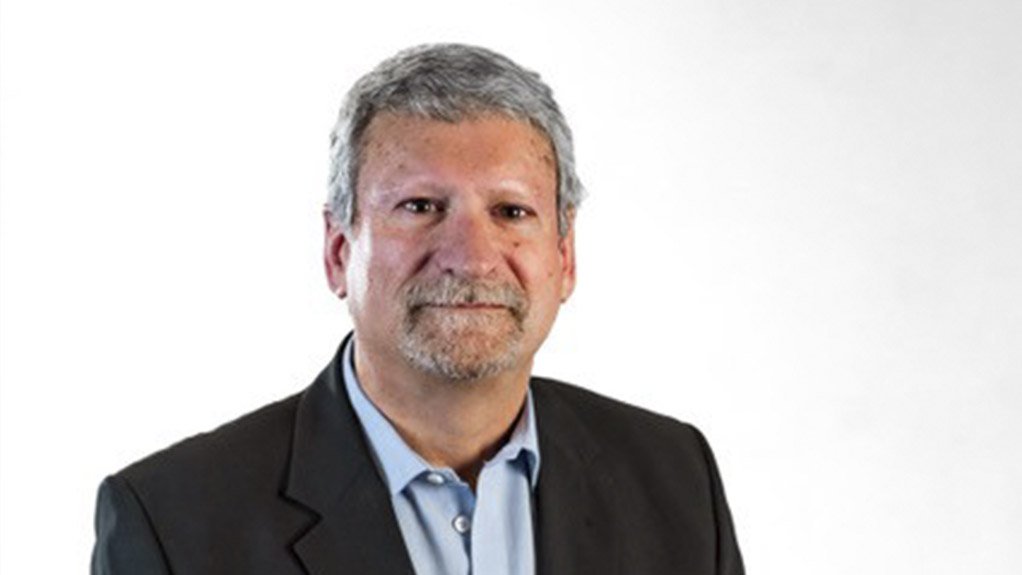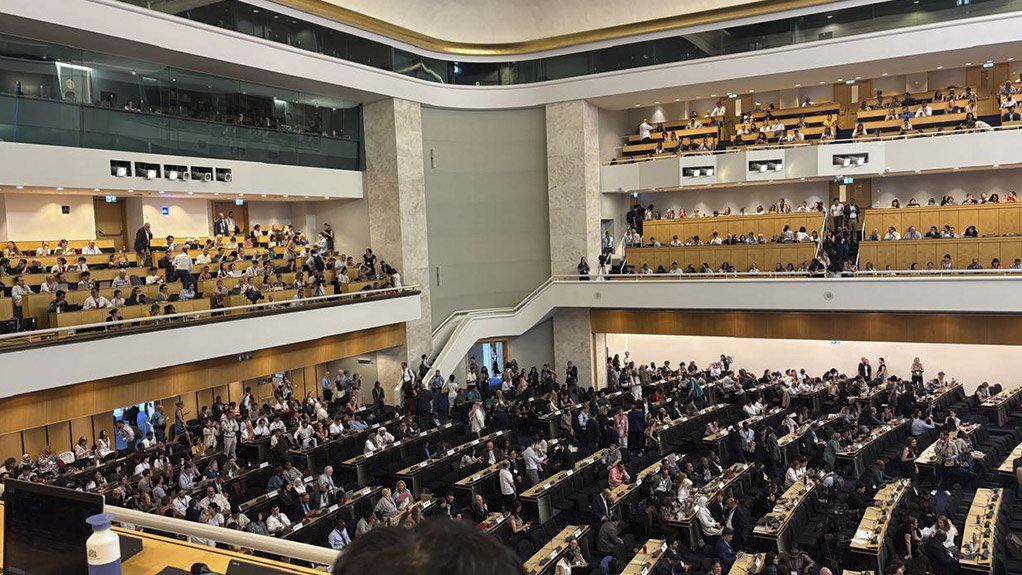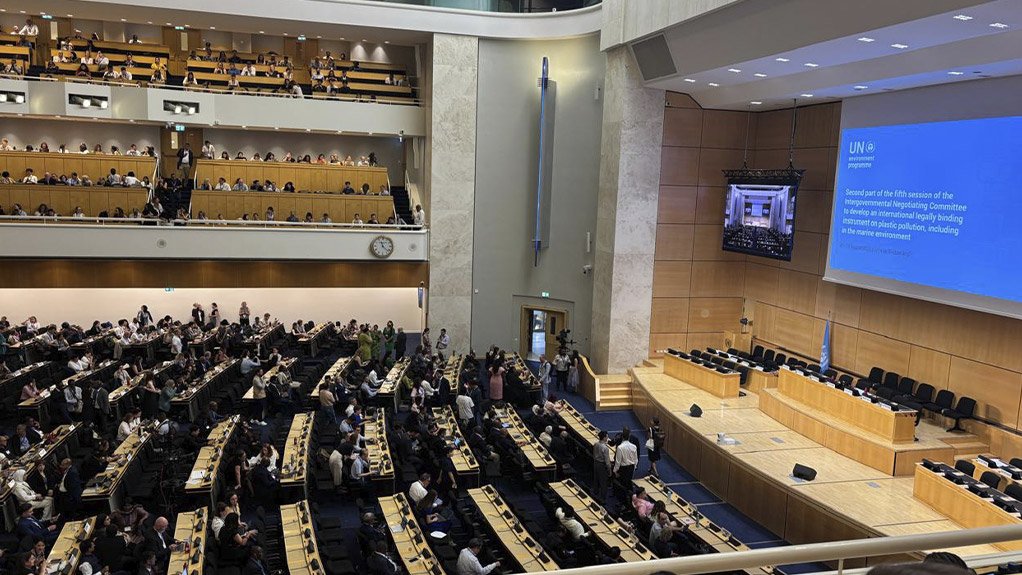PLASTICS SA RESPONDS TO OUTCOME OF INC-5.2 NEGOTIATIONS IN GENEVA Industry united in advocating risk-based assessments and clear scope within plastics treaty
This article has been supplied.
Plastics SA, the umbrella body representing the local plastics industry, has expressed concern over the failure of governments to reach agreement at last week’s Intergovernmental Negotiating Committee (INC-5.2) session in Geneva, Switzerland, which aimed to secure a legally binding global treaty on plastic pollution.
The latest round of negotiations ended without consensus due to deep divisions between nations and a lack of clarity on process. Despite days of bilateral and regional consultations, last-minute plenary sessions, and revised draft texts circulated in the early hours of 15 August 2025, member states were unable to find common ground. The Chair ultimately adjourned the session without establishing a clear way forward.
According to Anton Hanekom, Executive Director of Plastics SA, who attended the negotiations as an observer, negotiators were particularly divided on contentious areas such as definitions, scope, financing, sustainable production, and design requirements. Although there was general acknowledgment of the need for compromise, countries left Geneva without agreement on the fundamental building blocks of a treaty.
“The South African delegation, together with sector leaders, consistently emphasised the need for collaboration rather than bans or production caps, in line with our cabinet’s existing mandates. While some policy differences remain, particularly around the use of lists to regulate specific products or chemicals, we were encouraged to see signs of flexibility emerging within the member states. Although the INC-5.2 negotiations in Geneva ended without consensus, we regard the process as an important step forward in highlighting both the challenges and opportunities that lie ahead,” he said.
Call for Balanced, Implementable Solutions
During the recent negotiations, Plastics SA reaffirmed its alignment with the views of global plastics industry coalitions such as the Global Partners for Plastics Circularity (GPPC), which have stressed the importance of practical, balanced, and implementable solutions.
“A workable treaty must balance environmental goals with economic realities and respect the needs of developing countries. South Africa supports approaches that incentivise sustainable design, promote investment in recycling and recovery systems, and expand waste management to the billions of people worldwide who currently lack access. This can only happen if negotiators are willing to move beyond rigid positions,” Hanekom explained. He stressed that the plastics industry is already investing heavily in solutions to keep plastics in the economy and out of the environment.
South Africa’s Position
South Africa entered the talks with a commitment to advancing both domestic and international efforts to combat plastic pollution. The Minister of Forestry, Fisheries and the Environment, Dr Dion George, met with industry, civil society, and business stakeholders during the negotiations to strengthen national partnerships around the circular economy.
“Our industry remains united in opposing the inclusion of chemicals within the plastics treaty framework, advocating instead for clear, risk-based assessments that distinguish between chemical and plastic interests. What matters most now is finding a practical, implementable solutions that advance circularity without undermining the progress already being achieved to end plastic pollution,” Hanekom reported.
Across South Africa, significant progress has been made in developing mechanical and advance recycling technologies, phasing out non-recyclable products, and promoting design for circularity. South Africa has also implemented Extended Producer Responsibility (EPR) regulations that place accountability on producers for the lifecycle of their products.
“Our EPR system, founded on the polluter-pays principle, is a cornerstone of South Africa’s national strategy. It is driving investment in recycling infrastructure, encouraging innovation in product design, and strengthening collaboration between industry, government, and consumers. We have already launched several targeted initiatives, including projects to promote the reuse of plastic packaging, improved sorting and beneficiation of all packaging, accredited training for waste pickers, and river catchment programmes aimed at removing plastic waste from the environment to curb pollution.
The results are evident. In 2024, the use of recyclate has increased by more than 67% over the past decade. South Africa’s per capita plastic consumption remains relatively low and stable at around 27 kg per person per year—well below the global average. Despite significant challenges in waste management infrastructure, with 39% of the population lacking access to formal waste collection, recycling continues to grow. In fact, South Africa recycled and reused 458,000 tons of plastic waste in new products, achieving a recycling output rate of 28.4%—more than double the world average. These measures show that we are not waiting for a global treaty to take action,” Hanekom said.
Looking Ahead
Despite the setback in Geneva, momentum continues. South Africa will host the G20 Environment and Climate Sustainability Ministerial in Cape Town in October 2025, where plastics, waste, and chemicals will be key items on the agenda. This event will provide another platform to press for solutions and strengthen international cooperation to end plastic pollution.
“The world cannot afford failure,” Hanekom concluded. “A global plastics treaty remains the best opportunity we have to coordinate action, accelerate the circular economy, and protect the environment for future generations. Plastics SA and the broader South African plastics industry stand ready to contribute expertise and innovation to ensure that when negotiations resume, they succeed. The stakes are simply too high to allow further delay.”
Article Enquiry
Email Article
Save Article
Feedback
To advertise email advertising@creamermedia.co.za or click here
Press Office
Announcements
What's On
Subscribe to improve your user experience...
Option 1 (equivalent of R125 a month):
Receive a weekly copy of Creamer Media's Engineering News & Mining Weekly magazine
(print copy for those in South Africa and e-magazine for those outside of South Africa)
Receive daily email newsletters
Access to full search results
Access archive of magazine back copies
Access to Projects in Progress
Access to ONE Research Report of your choice in PDF format
Option 2 (equivalent of R375 a month):
All benefits from Option 1
PLUS
Access to Creamer Media's Research Channel Africa for ALL Research Reports, in PDF format, on various industrial and mining sectors
including Electricity; Water; Energy Transition; Hydrogen; Roads, Rail and Ports; Coal; Gold; Platinum; Battery Metals; etc.
Already a subscriber?
Forgotten your password?
Receive weekly copy of Creamer Media's Engineering News & Mining Weekly magazine (print copy for those in South Africa and e-magazine for those outside of South Africa)
➕
Recieve daily email newsletters
➕
Access to full search results
➕
Access archive of magazine back copies
➕
Access to Projects in Progress
➕
Access to ONE Research Report of your choice in PDF format
RESEARCH CHANNEL AFRICA
R4500 (equivalent of R375 a month)
SUBSCRIBEAll benefits from Option 1
➕
Access to Creamer Media's Research Channel Africa for ALL Research Reports on various industrial and mining sectors, in PDF format, including on:
Electricity
➕
Water
➕
Energy Transition
➕
Hydrogen
➕
Roads, Rail and Ports
➕
Coal
➕
Gold
➕
Platinum
➕
Battery Metals
➕
etc.
Receive all benefits from Option 1 or Option 2 delivered to numerous people at your company
➕
Multiple User names and Passwords for simultaneous log-ins
➕
Intranet integration access to all in your organisation























